In the quest for a sculpted physique and optimal performance, the importance of nutrition cannot be overstated. When it comes to building muscle and maximizing gains, protein-rich foods are the cornerstone of any effective diet plan. This article delves into the world of protein, its crucial role in muscle growth, and provides a comprehensive guide to the top protein-rich foods that can fuel your workouts and propel you towards your fitness goals.
Understanding Protein and Muscle Growth
Protein is often hailed as the building block of muscle, and for good reason. When you engage in resistance training or high-intensity workouts, you create tiny tears in your muscle fibers. It is during the recovery phase that these fibers repair and grow stronger, a process known as muscle protein synthesis. Protein provides the essential amino acids needed for this repair and growth, making it a vital component of any muscle-building regimen.
The Protein Powerhouses
1. Chicken Breast:
A staple in many bodybuilders' diets, chicken breast is a lean source of protein that is low in fat. Packed with approximately 25 grams of protein per 3-ounce serving, it provides the amino acids necessary for muscle repair.
2. Salmon:
Not only is salmon rich in protein, but it also boasts omega-3 fatty acids, which have anti-inflammatory properties that aid in recovery. With around 22 grams of protein per 3-ounce serving, it's a delicious and nutritious option.
3. Eggs:
Nature's perfect protein, eggs are a versatile and affordable source of high-quality protein. A single large egg contains about 6 grams of protein, along with essential vitamins and minerals.
4. Greek Yogurt:
Creamy and satisfying, Greek yogurt is loaded with protein and probiotics. A 6-ounce serving can pack in around 15-20 grams of protein, making it an excellent post-workout snack.
5. Lean Beef:
Beef is rich in protein, iron, and zinc, all of which are essential for muscle growth and recovery. Opt for lean cuts like sirloin or tenderloin to keep fat content in check.
6. Quinoa:
For those seeking plant-based protein sources, quinoa is a complete protein, meaning it contains all nine essential amino acids. With approximately 8 grams of protein per cooked cup, it's a fantastic option for vegetarian or vegan athletes.
7. Cottage Cheese:
Another dairy delight, cottage cheese is a casein-rich protein that is slow-digesting, making it ideal for sustained muscle repair. A half-cup serving can provide around 14 grams of protein.
8. Tofu:
Made from soybeans, tofu is a versatile protein source that can be used in a variety of dishes. With approximately 10 grams of protein per 3-ounce serving, it's a favorite among vegetarians and vegans.
9. Turkey:
Like chicken, turkey is a lean protein that is low in fat. It offers around 24 grams of protein per 3-ounce serving, making it a great option for those looking to boost their protein intake without excess calories.
10. Lentils:
These legumes are not only rich in protein but also in fiber, which aids in digestion and satiety. A cooked cup of lentils can provide around 18 grams of protein, along with a host of other nutrients.
Incorporating Protein into Your Diet
Now that we've explored the top protein-rich foods, let's discuss how to incorporate them into your daily diet for maximum benefit.
Breakfast:
- Start your day with a protein-packed breakfast by enjoying eggs with whole-grain toast or Greek yogurt topped with berries and nuts.
Lunch:
- For lunch, opt for a chicken or turkey salad with plenty of vegetables and a drizzle of olive oil dressing.
Snacks:
- Keep cottage cheese or Greek yogurt cups on hand for a quick and easy snack.
- Almonds or other nuts are also a convenient and protein-rich option.
Dinner:
- Salmon or lean beef paired with quinoa and steamed vegetables makes for a satisfying and muscle-building dinner.
- Tofu stir-fry with colorful veggies and brown rice is a delicious vegetarian option.
Post-Workout:
- Within 30 minutes of finishing your workout, refuel with a protein shake or a turkey sandwich on whole-grain bread.
Supplements for Added Support
While whole foods should always be the foundation of your diet, supplements can be beneficial for filling in any nutritional gaps. Whey protein powder is a popular choice for its convenience and fast absorption, making it an ideal post-workout option. Branched-chain amino acids (BCAAs) can also support muscle recovery and growth when taken before or after training sessions.
Importance of Timing
In addition to choosing the right protein sources, timing your protein intake can also impact muscle growth. The peri-workout period, which includes before, during, and after your workout, is a crucial window for protein consumption.
Pre-Workout:
- Consuming a protein-rich snack or meal before your workout can provide your muscles with the necessary amino acids for fuel and repair. Aim for a combination of protein and carbohydrates, such as a turkey sandwich on whole-grain bread or Greek yogurt with fruit.
Intra-Workout:
- While not always necessary, some athletes choose to consume protein during their workout, especially during long or intense training sessions. This can be in the form of a protein shake or BCAAs to prevent muscle breakdown and promote recovery.
Post-Workout:
- The post-workout period is often considered the most critical for protein consumption. Your muscles are primed to absorb nutrients, making it an ideal time to refuel with a protein-rich meal or shake. Whey protein, due to its fast absorption rate, is a popular choice for post-workout nutrition.
Consider Your Total Daily Intake
While focusing on post-workout protein is essential, it's also crucial to consider your total daily protein intake. The general recommendation for individuals looking to build muscle is to consume between 1.2 to 2.2 grams of protein per kilogram of body weight per day. This range allows for individual differences in metabolism, activity level, and training intensity.
Pair Protein with Carbohydrates and Fats
While protein is essential for muscle growth, it's also important to include carbohydrates and healthy fats in your diet. Carbohydrates provide energy for your workouts, while fats support hormone production and overall health.
Carbohydrates:
- Opt for complex carbohydrates such as whole grains, fruits, and vegetables to provide sustained energy throughout the day. These foods can be paired with protein sources to create balanced meals that support muscle growth.
Healthy Fats:
- Incorporate sources of healthy fats such as avocados, nuts, seeds, and olive oil into your meals. These fats not only provide essential nutrients but also aid in the absorption of fat-soluble vitamins.
Hydration Matters
Proper hydration is often overlooked but is crucial for optimal muscle function and recovery. Water is essential for nutrient transport, temperature regulation, and overall performance. Aim to drink at least 8-10 cups of water per day, and more if you are engaging in intense workouts or live in a hot climate.
Rest and Recovery
Lastly, don't underestimate the importance of rest and recovery in the muscle-building process. Muscles grow and repair during periods of rest, so ensure you are getting enough sleep and incorporating rest days into your training schedule. Overtraining can hinder progress and increase the risk of injury, so listen to your body and prioritize recovery.
Supplements for Consideration
While whole foods should always be the primary source of nutrients, certain supplements can complement a muscle-building diet:
Creatine:
- Creatine is one of the most researched and effective supplements for increasing muscle mass and strength. It works by providing energy for high-intensity, short-duration activities, such as weightlifting.
Beta-Alanine:
- Beta-alanine is an amino acid that can improve endurance by buffering lactic acid buildup in muscles. It may allow you to push harder during workouts and recover more quickly.
Vitamin D:
- Vitamin D plays a role in muscle function and immune health. Many people are deficient in this vitamin, especially those in regions with limited sunlight. Consider a vitamin D supplement, particularly during the winter months.
Conclusion
In the journey to build muscle and improve athletic performance, nutrition plays a pivotal role. Protein-rich foods are essential for supporting muscle growth, repair, and recovery. By incorporating the top protein sources mentioned in this article into your daily diet, you can fuel your workouts, optimize your gains, and move closer to achieving your fitness aspirations. Remember, consistency is key, so make these protein powerhouses a regular part of your meal plan and watch your muscles thrive.













0 Comments